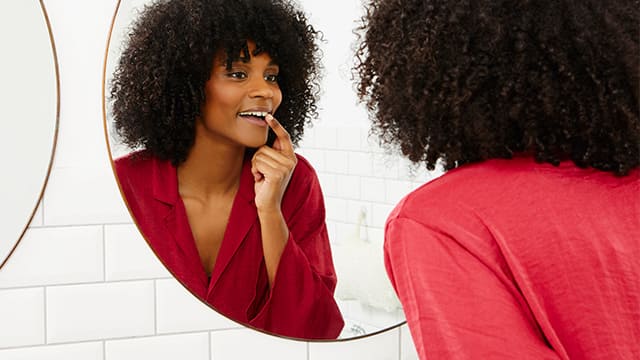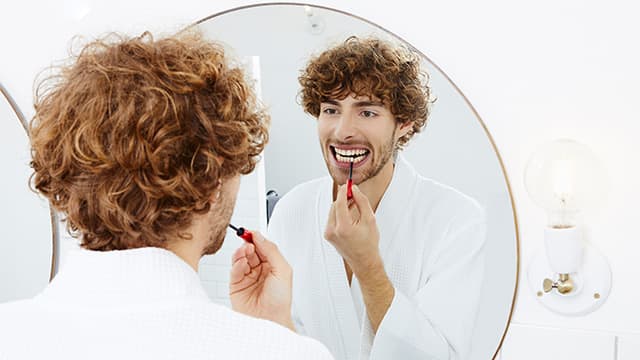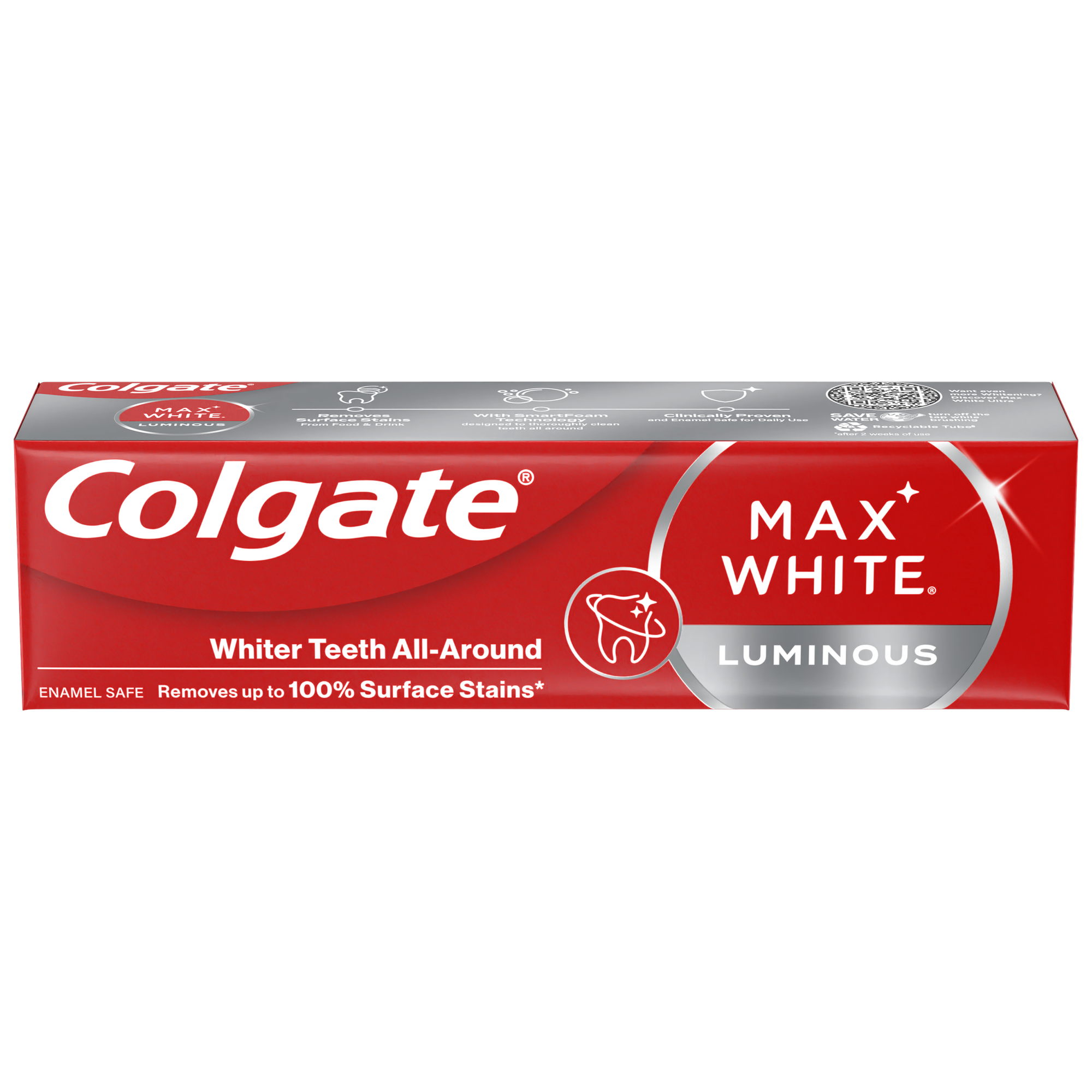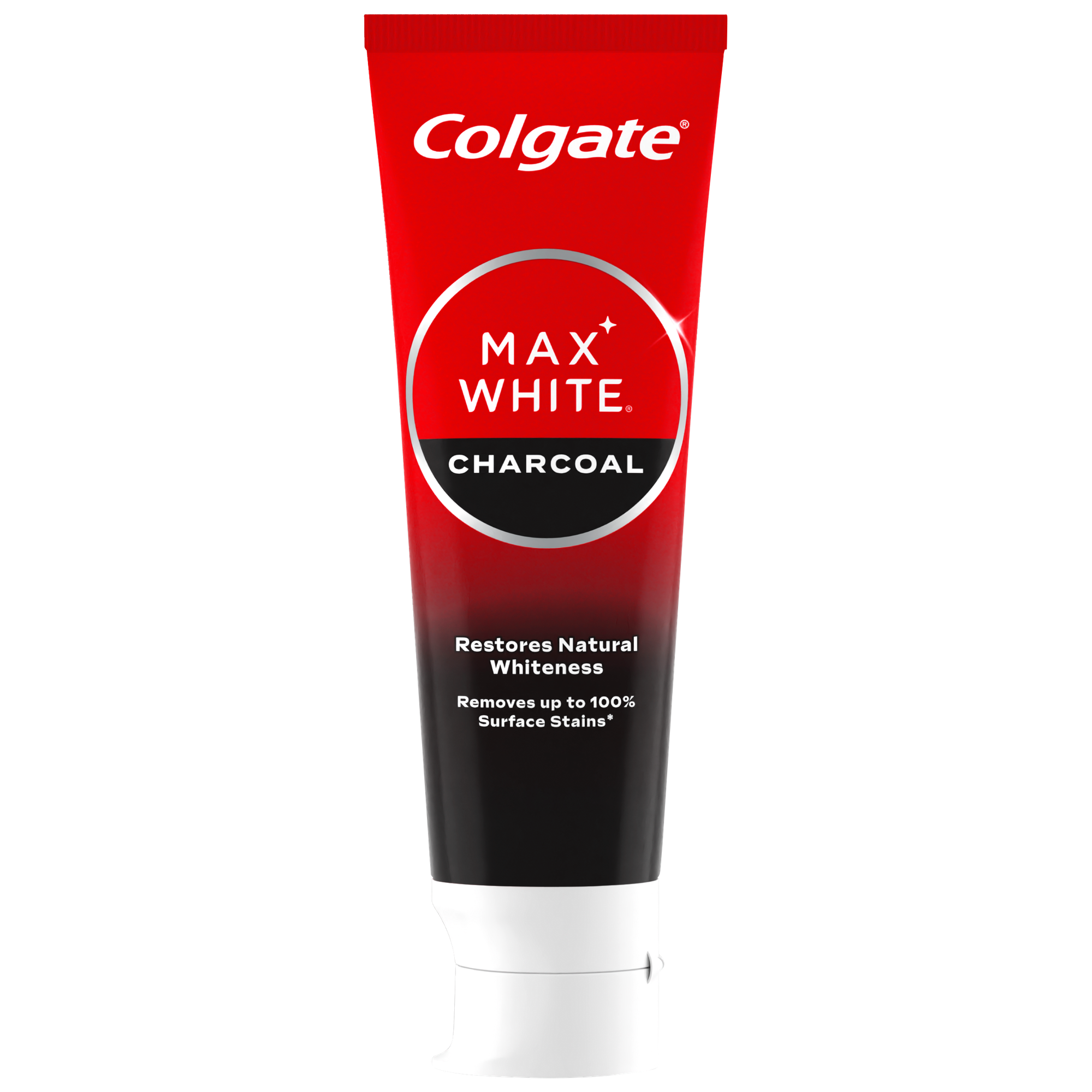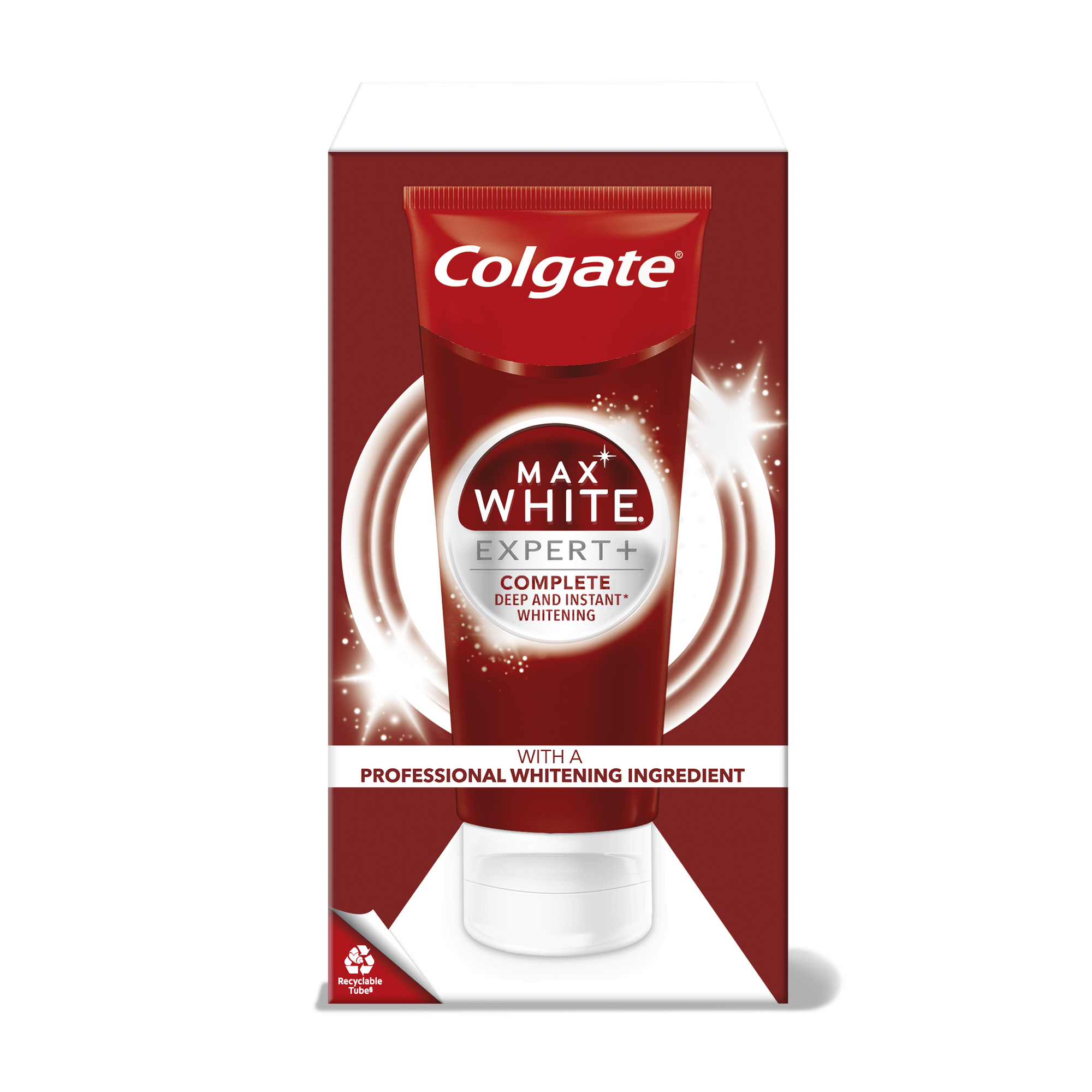How do teeth whitening strips work on your teeth?
Teeth whitening strips work through a process called peroxide bleaching. The strips are coated with a gel that contains either hydrogen peroxide or carbamide peroxide, which are whitening agents.
When you apply the whitening strips to your teeth, the peroxide in the gel penetrates the enamel (the outer layer of your teeth) and reaches the dentin (the layer beneath the enamel). The peroxide molecules break down the chemical bonds that hold the stain molecules together, effectively bleaching the stains and making your teeth appear whiter.
It's important to note that teeth whitening strips primarily target surface stains, which are usually caused by certain food and drinks. Whitening strips may not be able to reach stains deeper in your teeth. If you’re looking to remove deeper stains, you may want to consider other at-home teeth whitening solutions like a teeth whitening kit.
Should you brush your teeth before using whitening strips?
The first, and most important thing to note here is to always carefully read your whitening strips instructions before using them. Generally, it’s safe to brush your teeth before using whitening strips and it may even help the whitening process.
Brushing and flossing your teeth before using whitening strips can remove plaque and any food particles that may be between your teeth and could potentially get stuck underneath the whitening strips. This may cause an uneven whitening result, which you’ll want to avoid.
Also, whitening strips usually stick better to clean teeth, which will also improve your whitening results. If you decide to brush your teeth before using whitening strips, it’s important to wait 30 minutes after brushing before you apply the whitening strips. If you use them immediately after brushing you might experience gum irritation.
Should you brush your teeth after using teeth whitening strips?
It’s generally considered safe to brush your teeth after using teeth whitening strips, but you don’t have to. It’s best to check the manufacturer’s instructions before using whitening strips.
If you do brush your teeth after using whitening strips, you should do so with a soft bristle toothbrush and make sure that you brush very gently. You should do this to avoid any tooth and gum irritation, especially is you usually suffer from sensitive teeth.
What should you not do after teeth whitening strips?
After using whitening strips or any other teeth whitening solution like a teeth whitening kit, you’ll want to make sure that you keep your teeth looking bright and white for longer. Here are some tips for maintaining your whitening results:
Limit foods and drinks that could cause staining, like coffee, tea, berries and dark-coloured sauces.
Avoid acidic foods and drinks, such as citrus fruits and fizzy soft drinks that can erode your enamel, making your teeth more susceptible to staining.
Practice good oral hygiene by brushing your teeth and using mouthwash twice a day. You should also floss daily.
Use a whitening toothpaste like our Colgate Max White Ultimate Toothpaste that reverses years of deep-set stains.
Visit your dentist regularly for a check up and to professionally clean your teeth.
How often can you whiten your teeth with strips?
Because each brand of whitening strips will work in a different way, it’s always best to check the manufacturer’s instructions. It’s important that you follow these instructions carefully and do not overuse your whitening strips. Manufacturer’s will always include instructions to make sure you don’t damage your teeth or cause any harm.
Side effects of whitening strips
While teeth whitening strips are generally safe when used as directed, there may be some side effects and risks. Here are a few to be aware of:
One of the most common side effects is tooth sensitivity. This sensitivity usually decreases after you stop using the strips, but it can be uncomfortable during the treatment period.
Whitening strips that come into contact with your gums may cause irritation, especially if the strips are not applied properly or if they’re left on for longer than recommended.
Whitening strips may not always provide even results, especially if they don't mould well to the shape of your teeth, or if there are areas of uneven stains.
Teeth whitening strips are primarily designed to remove surface stains and may not be as effective on deep-set ones.
What happens if you leave white strips on overnight?
It’s not recommended to leave whitening strips on overnight or for any longer than what the manufacturer recommends. This is to make sure you don’t cause nay unpleasant side effects or damage to your teeth. Leaving whitening strips on for longer than recommended can lead to these side effects.
Tooth sensitivity
Whitening strips may contain harsh chemicals that can cause sensitivity. This happens when hydrogen peroxide passes through your enamel and reaches the dentin layer underneath it. This can irritate the nerves in your teeth and leave you with unpleasant sensitivity.
Gum irritation
Just like whitening strips can cause tooth sensitivity if you leave them on for too long, the ingredients in them can also cause gum irritation. This usually happens when you use them too often or wear them for too long, which is why it’s important not to leave them on overnight. As always, carefully read and follow the instructions.
Tooth damage
If you use whitening strips too often or leave them on for too long, they may even damage your teeth, which you’ll want to avoid as much as possible. The peroxide in the whitening strips may destroy layers of your teeth, which can lead to enamel erosion and demineralisation. This is why it’s very important not to overuse them or leave them on overnight.
Consult a dental professional
If you’re still unsure if whitening strips are the best at home whitening solution for you, you should chat to your dental professional, who’ll be able to give you guidance.
ORAL HEALTH QUIZ
What's behind your smile?
Take our Oral Health assessment to get the most from your oral care routine
ORAL HEALTH QUIZ
What's behind your smile?
Take our Oral Health assessment to get the most from your oral care routine





